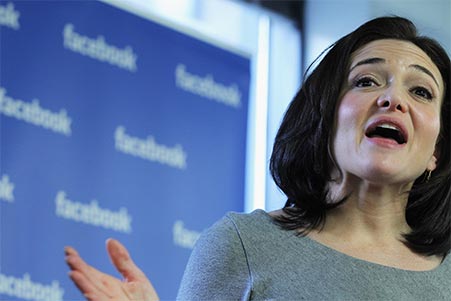WHAT WOMEN WANT |
 |
| DIANE TANGNEY SAYS MARKETERS MUST UNDERSTAND WOMEN BETTER |
Surely the answer to ‘what women want’ is not far from health, happiness and the human pursuit towards an enlightened state of being, that cloud-covered summit of Maslow’s pyramid. Not word for word what you’d get back from a research group, I grant you. But it is certainly worth considering, as women are increasingly influential – socially, economically and domestically – acting as gatekeeper purchasers not just for their children, but also for their partners and parents.
Underlying the Mel Gibson-tainted notion of what women want is in fact the journey toward an enlightened state of being or, more simply, the journey towards your best self. We don’t talk about it, the greater journey, in a personal capacity all that much. We leave it to public discourse and for others to publish their thoughts on our evolution. But it is worth thinking about every now and then and taking a little piece of insight from public discourse, to help us along our own path.
Feminism is the female branded version of the search for enlightenment, with executive feminism being a topical sub–brand this year. For anyone not following Facebook COO Sheryl Sandberg’s Lean In message, the gist of her argument is that women tend to lean back and not put themselves forward for promotion, for tough projects, for pay increases, or for new jobs when something more important is going on in their lives; like getting engaged, married and having children. Suddenly a decade has passed and a career has stalled. Sandberg has a valid argument and offers good career advice. But her comments do not begin to address what it is women want.
 |
WOMEN’S PRIORITIESThe gist of Facebook boss Sheryl Sandberg’s argument is that women tend to lean back and not put themselves forward for promotion, for tough projects, for pay increases, or for new jobs when something more important is going on in their lives. |
Sandberg has been criticised as elitist and disconnected from the average woman’s reality. Both are true but don’t we often take advice from those who have achieved on a great scale? Elitist and disconnected from reality only becomes a problem when Sandberg’s lifestyle and choices are portrayed as a benchmark to which others aspire. The bigger issue then is that Sandberg and her peers are poster-women for ‘having it all’, a depiction of what we are supposed to aspire to; of what women want.
Tracing the origins and development of this ideal of ‘having it all’ is the key to unlocking what women want, not just successful working mothers, the ‘have it all’ pin-ups, but all women. The notion of ‘having it all’ was made populist by Helen Gurley Brown (HGB), the 90-year–old Cosmopolitan editor and author of Sex and the Single Girl, who died last year. The intoxicating notion of being able to ‘have it all’ was progress toward enlightenment and opened the door to possibilities.
But the ‘having it all’ ideal hit a major stumbling block along the way. It gradually lost HGB’s liberal interpretation of what successful family and work–life could mean. Instead, society’s tendency to add a layer of ‘convention’ to such notions took over and ‘having it all’ became synonymous with the nuclear 2.5-kid family and a well-paid office job. It has become like a hand-me–down coat that is an uncomfortable fit.
Freeing ourselves from the ‘having it all’ ideal, means disbanding with the conventional definition of successful work and family life and liberating it with a
more freeing notion. What if ‘having it all’ was about a more modern definition of family and self, rather than family and work? The modern definition of family means family of origin, partners and close friends as well as ‘your own’ family.
The notion of ‘self’, replacing ‘work’ opens endless possibilities. For some, it may be a conventional career, for others it may be the fulfillment of being a stay–at-home–mum, work in the arts, bob-a–jobbing to fund a nomadic life of adventure, or whatever it is you fancy. This interpretation of ‘having it all’ does not re-define it, but liberates it from conventional definition. Let’s get this notion into public discourse so that we might take a little piece of insight from it, and remind ourselves the point is to inch ever closer towards our best self, which is not measurable by a payscale, or point on a career ladder. This insight into the modern female mindset, gives rise to trends such as, new ideals of female identity, the pushing back of life stages, and trade-off thinking. Understanding these trends can help to unlock better, more meaningful communication and enhanced participation in the lives of women.
Helen Gurley Brown was dead right about one other thing: women want what men
want. So what do men want from life? Surely the answer is not far from health, happiness and the human pursuit towards an enlightened state of being. Not word for word what you would get back from a research group, I grant you.
diane.tangney@ogilvy.com
Diane Tangney is planning director at Ogilvy Dublin









